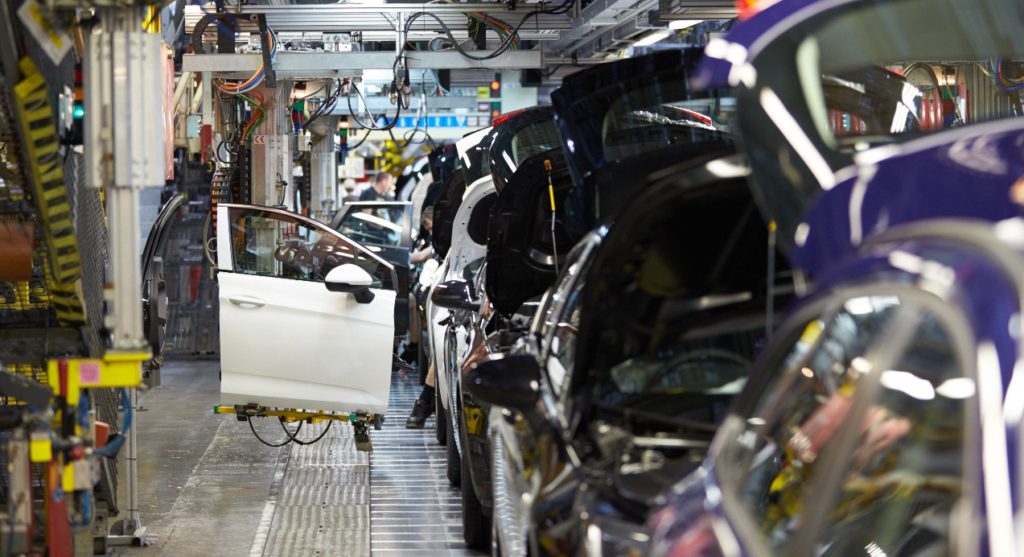Stellantis boss casts doubt on future of UK manufacturing
20 January 2021

20 January 2021
The UK’s decision to end the sale of new internal combustion engine (ICE) vehicles in 2030 could result in plant closures as carmakers study investment models related to the development of electrically-chargeable vehicles (EVs).
Comments made by Stellantis CEO Carlos Tavares, during a press conference held to herald the organisation’s birth, highlighted the issues the change from ICE to electrification could cause. During the Q&A session, Tavares was unable to confirm the company’s beleaguered Ellesmere Port plant’s future, despite the agreement of a UK-EU trade deal.
′As soon as you say that we are going to ban the sales of this kind of car we will stop investing,’ Tavares commented. ′If we are told that in 2030, internal combustion engines cannot be sold in the UK, which we respect as a decision from the country, then we are not going to invest in ICE anymore, because that makes no sense.’
The Stellantis boss suggested that the company looks at market volumes and place its manufacturing of vehicles strategically to serve areas with higher sales. ′You put your investment close to the market where you sell the highest volume. What is left is for the UK.’
′Perhaps it’s better to predict [investments in] continental Europe, perhaps not. It depends on the UK government’s willingness to protect some kind of automotive industry in its own country, which is about their strategy on the manufacturing field. So, we are now reviewing those different scenarios.’
The Ellesmere Port plant was the focus of much speculation during the Brexit negotiations. ′For us, it’s quite simple; we need visibility on customs; that’s all. We need visibility on customs for parts coming from continental Europe or the rest of the world. We need visibility on the customs for cars coming out of the UK to continental Europe.’ Tavares said back in July when uncertainty over rexit deal negotiations were ongoing.
Last year, PSA Group announced that production of the new Opel/Vauxhall Astra would be based at two locations, with RÜsselsheim in Germany being one of these, and either Ellesmere Port or a location in southern Europe, being the other. The decision was dependent on the outcome of Brexit trade negotiations, which concluded in December with a free-trade agreement (FTA).
European bans
The UK is just one of a number of countries introducing ICE bans as part of efforts to address climate change. The UK’s switch is the earliest among the big European automotive markets. Both France and Spain have switch targets of 2040. Germany and Italy have not yet made announced a target date for such a switch.
There have been calls for a Europe-wide ban on new ICE sales by 2035, with a letter sent to the European Commission by lobbying and consumer groups, stating such a move is required if the continent is to meet its Paris Climate Agreement aims for decarbonisation by 2050. However, with more time to produce and sell ICE models outside of the UK, and with decisions to be made on investment, Stellantis could look to move Astra production out of the UK.
Currently, around 80% of production at Ellesmere Port is exported. Therefore, Tavares’ comments about moving manufacturing closer to demand could be seen as a threat to the UK Government that it still needs to do more to help the country’s automotive sector in transitioning to electric-drive technologies.
′We are doing our best to discuss with all the stakeholders, including the UK Government, to try to find a way that protects our workers, Tavares said. ′Many of them exactly know what I’m telling you, but then everybody needs to accept the consequences of the decisions.’
Trade-deal relief
Tavares also highlighted how thankful he was that the UK and EU managed to come to an agreement over trade.
′I think we are relieved by the fact there is a Brexit deal,’ he told reporters. ′It would have been dramatic if we did not have a deal, and we have been hoping that good sense would prevail, so congratulations to all those that concluded the negotiations.’
The agreement reached includes thresholds for locally-sourced components, with no more than 60% of an EV to comprise of non-EU or UK components until 2023, dropping to 50% until 2026. If these thresholds are breached, tariffs will be applied to exported vehicles.
Tavares was confident that Stellantis could abide by these thresholds. ′I think it makes sense,’ he said. ′I think it is very aligned with a standard strategy, which is about engineering, investing and manufacturing. The electric components in Europe, electric motors, electrified automatic transmissions, battery packs and battery cells; we have invested in all of this. In addition, in the thresholds that were proposed by this deal, we are able to come up with the required local sources of components,’ he added.